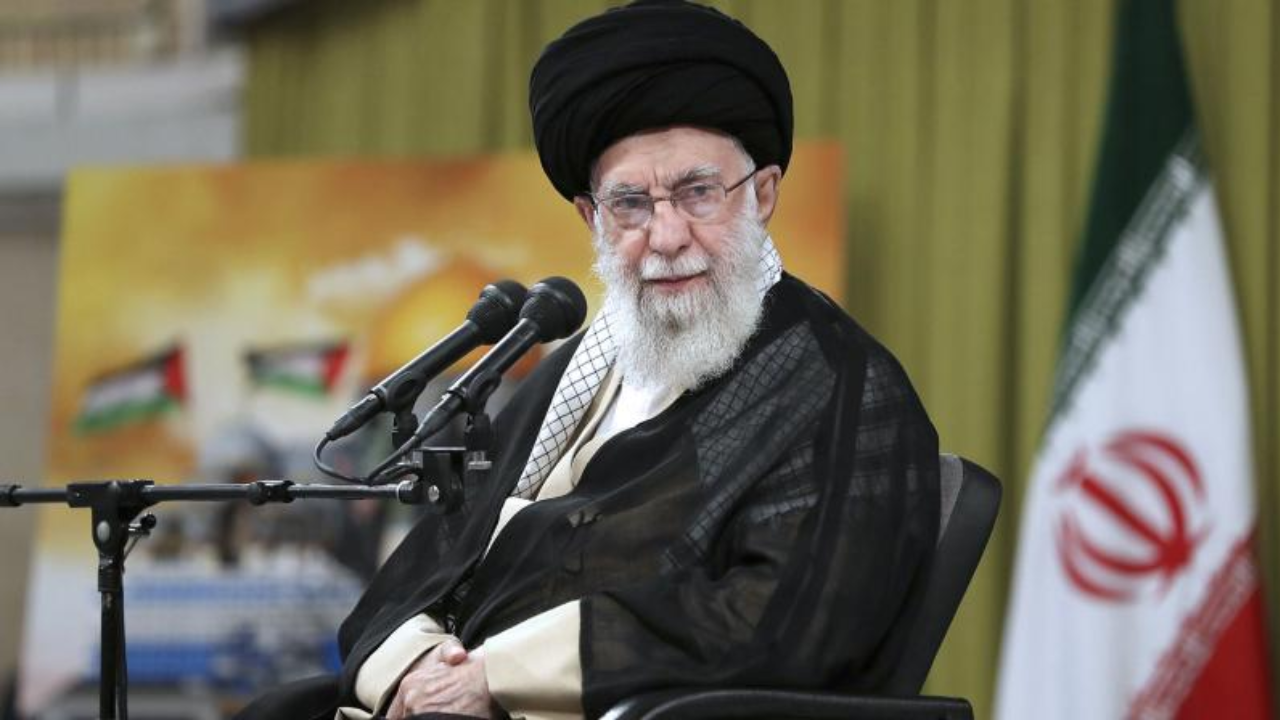Iran’s Supreme Leader Ayatollah Ali Khamenei
Photo: PTI
New Delhi: Iran’s Supreme Leader Ayatollah Ali Khamenei On Tuesday, a possible reopening of negotiations with the USA about IranIran’s nuclear program is in full swing and it has told Iran’s civilian government that there are “no barriers” to confronting its “enemy.”
Khamenei’s remarks set clear boundaries for any discussions that might take place under the reformist administration of President Masoud Pezeshkian and reiterated his skepticism toward Washington. However, his comments resemble those he made around the time of the 2015 nuclear deal, which significantly limited Iran’s nuclear activities in exchange for lifting economic sanctions.
It remains unclear how much flexibility Pezeshkian will have in these negotiations, especially given the current tensions in the Middle East due to the conflict between Israel and Hamas and the upcoming US presidential elections in November.
“We do not have to place our hopes on the enemy. We should not wait for the approval of the enemies for our plans,” Khamenei said in a video broadcast on state television. It is not contradictory to face the same enemy in some places, there are no barriers.
Khamenei, who has the final say on all state matters, also warned Pezeshkian’s cabinet: “Do not trust the enemy.”
Khamenei, 85, has occasionally urged or rejected talks with Washington after then-President Donald Trump unilaterally withdrew the United States from the deal in 2018.
He US The State Department did not immediately respond to a request for comment on Khamenei’s remarks. In recent years, there have been indirect talks between Iran and the United States mediated by Oman and Qatar, two of America’s interlocutors in the Middle East when it comes to Iran.
Since the deal’s collapse, Iran has abandoned all of the deal’s limits on its program and is enriching uranium to 60% purity, close to weapons-grade levels of 90%.
Surveillance cameras installed by the International Atomic Energy Agency have been dismantled, while Iran has banned some of the Vienna-based agency’s most experienced inspectors from entering the country. Iranian officials have also increasingly threatened that they might try to build atomic weapons.
Meanwhile, tensions between Iran and Israel have reached a new level during the war between Israel and Hamas in the Gaza Strip. Tehran launched a drone and missile attack on Israel in April, after years of shadow war between the two countries that climaxed with Israel’s apparent attack on an Iranian consular building in Syria, in which two Iranian generals and others were killed.
The assassination in Tehran of Hamas leader Ismail Haniyeh also prompted Iran to threaten retaliation against Israel.
Pezeshkian, a former lawmaker who won the presidency after a helicopter crash in May killed hardline President Ebrahim Raisi, campaigned in part on a promise to re-engage in negotiations with the West. Khamenei’s remarks as Iran’s supreme leader could provide him with the political cover to do so. Pezeshkian’s new foreign minister, Abbas Araghchi, was heavily involved in negotiations over the 2015 deal.
However, it is not just Iran that faces a new presidency. The United States will hold a presidential election on November 5, with Vice President Kamala Harris and Trump as the leading candidates. Iran has been worried about Trump returning to power.
While the US has held indirect talks with Iran during Joe Biden’s presidency, it is unclear how those talks would carry over into a potential Harris administration. In a speech at the Democratic National Convention last week, Harris said: “I will never hesitate to take any action that is necessary to defend our forces and our interests against Iran and Iranian-backed terrorists.”
Tuesday’s meeting between Khamenei and Pezeshkian’s cabinet included the participation of former Foreign Minister Mohammad Javad Zarif, who helped Iran reach the 2015 deal. After the meeting, Zarif said in an online message that he would continue to serve as vice president in Pezeshkian’s administration after previously publicly resigning over the cabinet’s composition.
(Contributions from the PTI)
Disclaimer:
The information contained in this post is for general information purposes only. We make no representations or warranties of any kind, express or implied, about the completeness, accuracy, reliability, suitability or availability with respect to the website or the information, products, services, or related graphics contained on the post for any purpose.
We respect the intellectual property rights of content creators. If you are the owner of any material featured on our website and have concerns about its use, please contact us. We are committed to addressing any copyright issues promptly and will remove any material within 2 days of receiving a request from the rightful owner.

